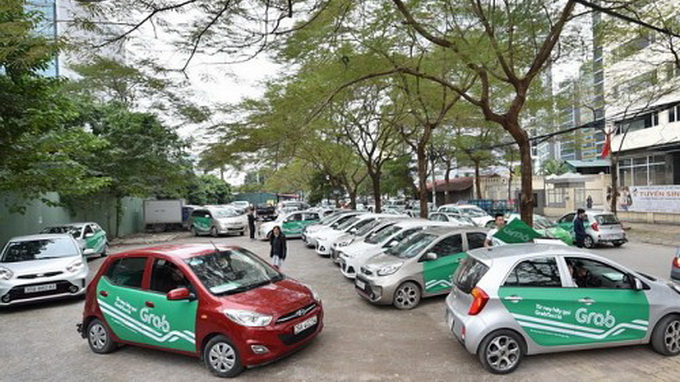Da Nang City’s administration has asked to delay a government-approved pilot run of the GrabCar ride hailing service over concerns of worsening traffic.
Nguyen Ngoc Tuan, deputy chairman of Da Nang City’s administration, has penned a letter addressing Vietnam’s Ministry of Transport asking for a delay in allowing a pilot run of GrabCar on the city’s streets.
GrabCar, owned by Grab, a startup previously known as GrabTaxi, allows people to order a private car with just a couple of taps on their mobile devices.
Last January, the transport ministry issued a decision giving the company the green light to pilot its GrabCar service in five provinces and cities, namely Hanoi, Ho Chi Minh City, Da Nang, Khanh Hoa and Quang Ninh between 2016 and 2018.
Since March 31, 2016, GrabCar has been the sole legitimate car-booking app in Vietnam, in what is seen as a huge legal victory for the company over traditional cab operators.
However, according to Tuan, GrabCar’s service is similar to those offered by traditional taxi companies in Vietnam, namely with regards to car models, hailing methods, and fares.
Tuan argued that other licensed taxi companies already have as many as 1,700 cars in circulation on Da Nang Streets, and that a pilot run for GrabCar without proper preparation would disrupt the city’s taxi planning and worsen traffic congestion.
“Because of Da Nang’s current growth rate of vehicles and state of infrastructure, the city is working on measures to reduce personal vehicles and combat worsening traffic,” the letter reads. “Therefore, [Da Nang]’s People’s Committee requests that the Ministry of Transport delay the pilot run of GrabCar in the city for the moment.”
Grab and Uber, a similar ride-sharing app, are considered game changers in Vietnam’s taxi market and are both increasingly favored by local passengers.
In a blow to the ride hailing app industry in Vietnam, Uber was ordered last month by the transport ministry to stop providing its service in the Southeast Asian country, as it was found to be registered in under the wrong industry and lacked transport contracts with its partners.
Like us on Facebook or follow us on Twitter to get the latest news about Vietnam!






















































